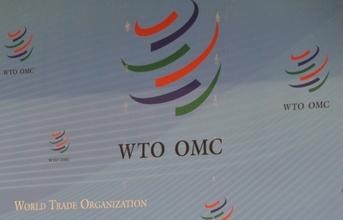
The United States Department of Commerce (US DOC) imposed Countervailing Duty (CVD) on India's exports of Hot Rolled Carbon Steel Flat Products. India had challenged the determinations made by the US DOC in various investigations / reviews treating several programmes of India as subsidy whereas, these programmes do not confer any subsidy on the Indian exporters.
Various provisions under challenge were that of US Tariff Act and the Code of Federal Regulations as being inconsistent with the provisions of WTO Subsidy Agreement (ASCM). The Panel Report was circulated on 14 July, 2014.
Thereafter, India and the US appealed before the WTO Appellate Body (AB) on various issues related to the Panel's Rulings. On 8 December, 2014 the AB published its Report.
India has achieved a significant victory at the WTO, as the AB held that the Countervailing Duty (CVD) measures imposed by the United States against "certain Hot Rolled Carbon Steel Flat Products" are inconsistent with various provisions of the Agreement on Subsidies and Countervailing Measures (ASCM). It will definitely help the domestic manufacturers who had been suffering on account of inconsistent practices by the USDOC.
Under the US law, cumulation of subsidised imports and dumped imports is mandated for the participating countries to arrive at the injury margin. India challenged this measure as it has been impacting the CVD investigations by the US leading to exorbitant CVD against India.
The AB ruled, in line with the Panel ruling, with a minor modification and found that the USDOC determination pursuant to Section 1677(7)(G)(iii) is "as such" inconsistent with Article 15 of the ASCM. It may be recollected that the Panel Ruling on inconsistency of the US application of this measure was not appealed by the US. The implication of this Ruling is that the US has to amend its domestic law to be WTO compliant and so far as the pending and the future CVD investigations are concerned, the same would be subject to challenge if cross-cumulation is applied again. It has significant trade impact for India as out of the current 10 products on which US has imposed CVD, about 7 products suffer from the same inconsistency.
(Continued on the next page)


























